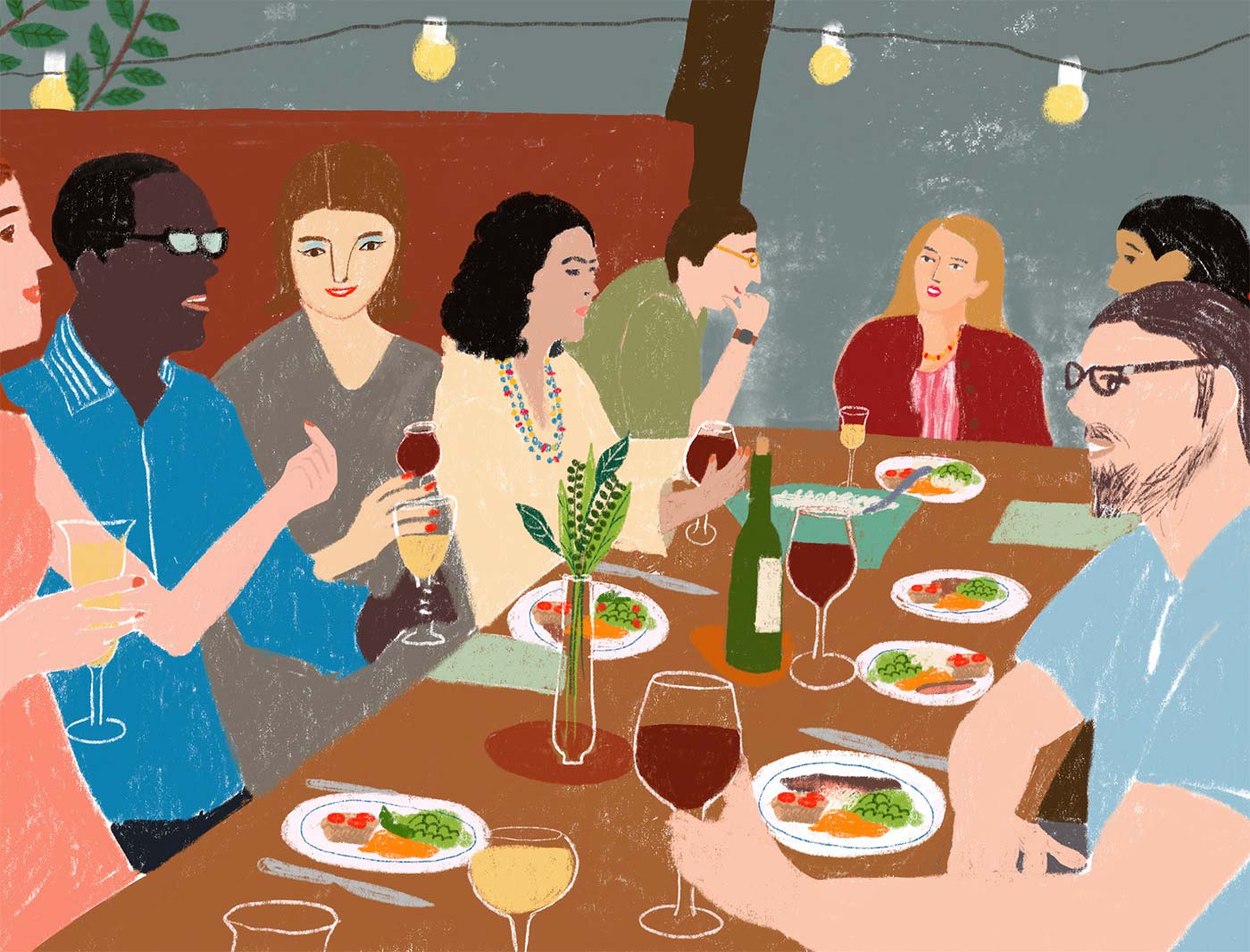Can Tomato Tarts Heal Grieving Hearts?
On a hot summer evening last year, I pulled a tomato tart out of the oven. With high hopes and crossed fingers, I peeked beneath the foil.
It smelled delicious. Thanks, Samin Nosrat, we nailed it. The tomato tart was for an event I was attending called The Dinner Party, yet it wasn’t quite the type of dinner party that might stir up images of champagne bottles being popped or fanciful desserts being passed around.
Instead, this particular dinner party was more likely to conjure images of hospital walls and funeral processions, bleak days and sleepless nights. The Dinner Party, after all, was a place for grieving.
Yes, this was a dinner party specifically for grieving. Pull up a chair, and I’ll tell you more.
The Dinner Party is an organization created for 20- and 30-somethings who have experienced a significant loss in their life, whether it’s a parent, partner, child, sibling or close friend. The loss might have occurred in childhood, or it might be more recent. Either way, it’s a club none of us ever wanted to join, but one we found ourselves in nonetheless.
With “dinner tables” in nearly 100 cities around the world, including Columbus, Cleveland and Cincinnati, the attendees—aka Dinner Partiers—gather together over a shared meal for one purpose: to have candid conversations about death and grief.
Our group was meeting in a warm and inviting home in Clintonville, hosted by a fellow Dinner Partier. None of us had ever met before, but we all had one thing that tied us together: the death of a parent.
Experiencing the loss of a parent at any age is difficult, but it’s especially difficult when it happens at a young age. This is a story I know well, as I lost my mother very suddenly and tragically in my early 20s. That loss became an incredibly isolating experience, as most of my peers still had both of their parents, if not their grandparents as well.
And while traditional bereavement groups do exist, like those often associated with hospitals or churches, these can further exacerbate the feeling of isolation when the other grievers are at different stages of life. Twenty and 30-somethings are often too young for the average bereavement group, while also being too old for youth grief support.
The Dinner Party was meant to fill that gap in support, and for good reason.
A nationwide survey of 1,006 adults age 25 and over by the New York Life Foundation revealed that 14% of those surveyed had lost a parent or sibling before the age of 20. When this percentage is applied to the U.S. adult population as a whole, it is estimated that nearly 30 million people in America have experienced the death of an immediate family member during childhood or adolescence. And while The Dinner Party could have organized as practically any kind of group so long as grief was at the center of it, such as The Tuesday Tennis Players or The Fantastic Knitting Club, the specific idea of breaking bread together holds additional significance in our society.
Few societies seem to move faster than Americans do, with productivity often taking precedence over everything else, including the sharing of meals. In fact, the average American eats one in every five meals in their car, while one in four Americans eat at least one fast food meal every single day. While physical health can surely suffer as a result of these habits, there is also something that can be said about the mental effects of eating alone.
But first, let’s get back to that tomato tart.
As I crossed the threshold into our host’s home at The Dinner Party, I wasn’t quite sure how I’d feel or react. This is where I was counting on the tart to help ingratiate myself to others. After each Dinner Partier had grabbed a plate, the host led the conversation, giving everyone the opportunity to introduce themselves and share what brought them to the table.
Between bites and sips, stories started flowing. Some shared more than others, and the conversations varied from things left unsaid to loved ones to the aftermath of funerals to how peers and coworkers had started treating them differently. Many spoke about where they were with their grief and where they hope to eventually be.
The gathering was a gentle but necessary reminder that even when grief feels terribly isolating, there are, in actuality, people who do get it. Eating together was a small act, and it required very little of us, but it was a chance to listen and a chance to be heard.
The connection between food and funerals runs deep, one that often carries into the days and weeks following a loss. But what about when the ceremonies end, there’s no more frozen lasagna and grief begins to settle itself in? While studies connecting the importance of food and grief are still in their infancy, there are some important elements that are known when it comes to sharing a meal together.
According to the Mental Health Foundation, there are psychological and social benefits to sharing a meal, such as increased feelings of contentment and security. It also brings a grounding opportunity where anxieties can be expressed and feelings heard. Listening to others during dinner time can also instill and deepen qualities such as empathy and understanding.
And perhaps most important of all, sharing meals can make people feel connected to others.
Eating won’t directly solve our grief—or any problem, for that matter. A tomato tart can’t bring back a loved one, make the holidays easier or sort out the almost cruel amount of paperwork that follows a death.
But what it can do is bring community back to where it has been lost. To lessen the heartache of isolation, to provide a sense of emotional nutrition and to make a dinner table feel whole again, even if that dinner table is in someone else’s home. Or, as chef and author Thomas Keller said, “When we eat together, when we set out to do so deliberately, life is better, no matter your circumstances.”
As for my life, I’ve not only found dear friendships, but a special place to improve my grief (and tomato tart) until they can be improved no more.
And while our own family dinner tables will never quite be complete again, at this one, we’re at least all in good company.
- For more information about joining or hosting a table, visit thedinnerparty. org.





